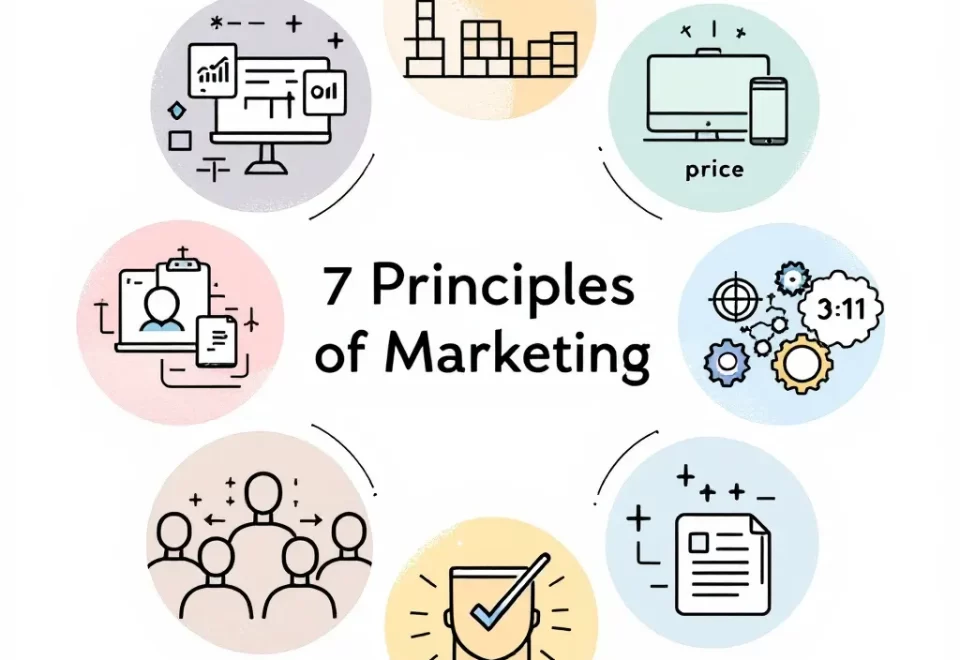It’s a hard time to be a business owner. An impending recession, historically high inflation, and a labor shortage mean businesses need every last edge to be successful. In these conditions, ways to reach new customers and build your business are invaluable.
Consumers are becoming increasingly digital oriented. When people need something, they open their phone or computer to find it. Gone are the days of opening up the phone book, or entirely relying on word of mouth to find new products or services.
Understanding how you can leverage your company’s digital image to generate new business is crucial. This is where reputation management comes in.
What is Reputation Management
Reputation management is managing, monitoring, and producing the digital narrative surrounding your company. When done successfully, it allows you to grow awareness of your business, counter negative sentiment, and better understand your competition.
Reputation management is a strategic process of monitoring, influencing, and shaping the public and perception of a brand, individual, or organization. It involves actively tracking, responding to, and mitigating negative content, as well as promoting positive content to improve the overall image and credibility.
This can include managing online reviews, responding to customer complaints, monitoring social media and other online platforms, and implementing crisis management strategies to protect the reputation in the event of negative publicity. Effective reputation management helps build and maintain a strong, trustworthy image, which can increase customer trust and loyalty, improve brand equity, and drive business growth.
As a company, in many ways you’re only as good as your reputation. People won’t try your product or service if they’ve heard bad things about you, or they haven’t heard of you at all. An effective reputation management strategy will ensure that people know, and positively associate with, your brand.
Good reputation management utilizes a broad variety of strategies for improving your business’s online image and generating new customers through both traditional and unconventional marketing. Good monitoring can inform content generation and marketing, ensuring resources are spent optimally. Many small businesses utilize reputation management tactics to great success, whether their goals are to mitigate negative PR, boost positive brand association, generate awareness, or gain new leads.
Reputation Management Strategies Include:
– Consumer Sentiment Monitoring
– Review Generation
– Negative Content Removal
– Crisis Management Tactics
– Social Media Marketing
How To Do Effective Reputation Management
Good reputation management is attainable, though it is not easy. You can generate good reviews by asking valued customers, examine your website’s presence through Google Analytics, and learn about SEO by reading books such as Franz Enzenhofer’s Understanding SEO.
However, if you want to implement a more comprehensive reputation management strategy, you should consider working with a reputation management company.
Reputation Management companies offer a wide range of services, from web content creation to competitive analysis, to help your business meet your goals. They employ SEO professionals to ensure you rank higher than your competitors in all the relevant google search results pages.
Do you need help with online reputation management?
Contact Growth Hackers
Services Offered By Reputation Management Companies
-Competitor Monitoring
-Social Media Management
-Content Removal
-Review Generation
-Brand Consulting
-Web Ad Placement
-Review Management
-Keyword Analysis
Because the array of reputation management strategies is so broad, each reputation management company specializes in a different aspect of the field. Some are better at paid marketing plans, others at SEO content generation. Some offer exclusively marketing tools, while others are focused on negative content removal. Each company has its own strengths, weaknesses, and pricing structures.
If you want to work with a reputation management company, it is important you find the one which is the best fit for you. There are many strong players in the industry, so understanding the landscape is vital.
User Experience is the Most Important Thing
There are many different reputation management strategies you can employ to the great benefit of your business. It is vital your site is fast, otherwise it won’t rank well. A constant awareness of your competitors can allow you to head off their progress and make more of your own. Being aware of the dialogue surrounding your brand can allow you the opportunity to suppress negative sentiment. But there is something more important than all of this. More important by far. User Experience.
User experience, commonly abbreviated as UX, is the experience someone has using your site of viewing your ads. If people are not having a positive experience with your site, it will not be successful. There’s nothing else you can do, if people are not having a successful experience with your site, nothing else matters.
UX is a critical factor in reputation management because it directly impacts the perception of a brand, individual, or organization. A positive user experience can lead to satisfied customers who are more likely to leave positive reviews, recommend the brand to others, and return for repeat business. Conversely, a negative user experience can result in dissatisfied customers who may share their negative experiences online, damaging the brand’s reputation.
Google monitors time spent on page, and factors this incredibly heavily into its decision of what sites to show. If people are having a bad user experience, they will not spend a lot of time on your site, and Google will take notice. If people are having a bad experience on your site, you won’t be able to generate good reviews. You won’t be able to generate good brand awareness.
UX encompasses all aspects of a user’s interaction with a brand, from the ease of use of a website or product to the quality of customer service. Improving UX can lead to increased customer satisfaction and loyalty, which can help build and maintain a positive reputation. Additionally, UX can also play a role in search engine optimization (SEO), as search engines such as Google consider the user experience when ranking websites in search results.
Your user experience needs to be your number one priority when considering your digital strategy. Without it, you cannot be successful.
Why to Invest in Reputation Management
The reputation management industry has many players, each with their own unique strengths, weaknesses, and offerings. There are many surface level objectives businesses have when investing in reputation management: getting new customers, increasing brand awareness, removing slanderous content, suppressing negative reviews, or mitigating PR disasters. However, the underlying reason businesses invest in reputation management is the same regardless of size, sector, or stripe. The internet is the most important space each business operates in. In the digital age, when consumers need something, they google it. It’s as simple as that.
There are several reasons why a business should invest in reputation management:
- Protects the brand image: Reputation management helps monitor and address negative content about a brand, preventing it from spreading and causing long-term damage to the brand’s image.
- Improves customer trust and loyalty: A positive reputation can increase customer trust and loyalty, which can lead to repeat business and positive word-of-mouth recommendations.
- Attracts new customers: A strong, positive reputation can attract new customers and improve brand recognition, leading to increased business growth.
- Supports crisis management: Reputation management helps businesses prepare for and respond effectively to potential crisis situations, minimizing the damage to their reputation.
- Enhances search engine optimization (SEO): A positive reputation can improve a brand’s search engine rankings, making it easier for potential customers to find the brand online.
- Increases market share: A strong reputation can lead to increased market share, as customers are more likely to choose a brand with a positive reputation over one with a negative reputation.
If someone wants to join a gym, they don’t drive around the neighborhood looking for gyms. They don’t wait until they can go to the watercooler and ask their coworkers if they know of any nearby gyms. They go to Google, or Google Maps, and type in “gym near me.” They then look at the top 3 results, maybe read a review or two, look at the websites, and pick one.
If someone wants to go out to dinner, they’re probably not going to wander around town waiting to stumble across something which seems good. They want to know where they’re going, have a reservation ahead of time, and know the food is going to be good. In order to do this, they’ll look to the internet.
This means that if you’re a gym or restaurant owner, it is critical that your gym shows up in the Google top three. It is critical that you have many glowing reviews, and when someone clicks on your website it’s clean, loads fast, and is clear.
Take control of your online presence with reputation management!
What Bad Reputation Management Looks Like
Bad reputation management always starts with ignorance. Ignorance of how your website is performing and what search keywords you are targeting. Ignorance of how fast your site loads and what your competitors are doing. Ignorance of how effective your marketing strategy is and what potential customers its targeting.
With this ignorance, you won’t be able to improve your marketing strategy or your site. You won’t know how your competitors are having success. You won’t know if your site is loading slowly, making it impossible to rank highly in search engine result pages. You won’t know if your ad click through rates are too low, meaning you’re wasting time and money placing them.
Bad reputation management leads to your business slowly falling into digital disrepair and irrelevance. There are countless businesses working to make their ads more effective, their sites rank higher, and their brand ubiquitously known. If you are not one of these, they will overtake you.
What Does Successful Reputation Management Look Like
Successful reputation management always starts with an awareness. An awareness which comes from the daily monitoring of Google Analytics and Google Ads. An awareness which comes from routinely running speed checks on your site, and running one every time it gets modified in some way. An awareness of what’s going on in your industry, and what your competitors are doing.
This awareness can lead you to improve your site. Create SEO content which builds awareness of your brand. Develop more nuanced and effective marketing strategies to reach new customers and build positive brand awareness. Suppress negative content to protect your online image. When you are doing all of these things, you are successfully managing your repudiation.
Closing Thoughts about the Importance of Reputation Management for your Business
In the modern age, reputation management should be something that all businesses strongly consider. The wide array of strategies the term encapsulates can all benefit your company in both unique and important ways. It can give you the edge on your competition to grow your business, get more customers, and positively build your brand. It all starts with awareness. You must have awareness of what your digital strategy is, how effective it is, how your site is performing on speed and SEO metrics, and what your competitors are doing. From this awareness you can begin to improve your metrics and strategy. Remember, user experience is king. Without a good user experience, you have nothing.
Growth Hackers is a modern ORM (Online Reputation Management) agency helping businesses from all over the world grow. There is no fluff with Growth Hackers. We help entrepreneurs and business owners manage their reputation successfully, increase their productivity, generate qualified leads, optimize their conversion rate, gather and analyze data analytics, acquire and retain users and increase sales. We go further than brand awareness and exposure. We make sure that the strategies we implement move the needle so your business grow, strive and succeed. If you too want your business to reach new heights, contact Growth Hackers today so we can discuss about your brand and create a custom growth plan for you. You’re just one click away to skyrocket your business.








